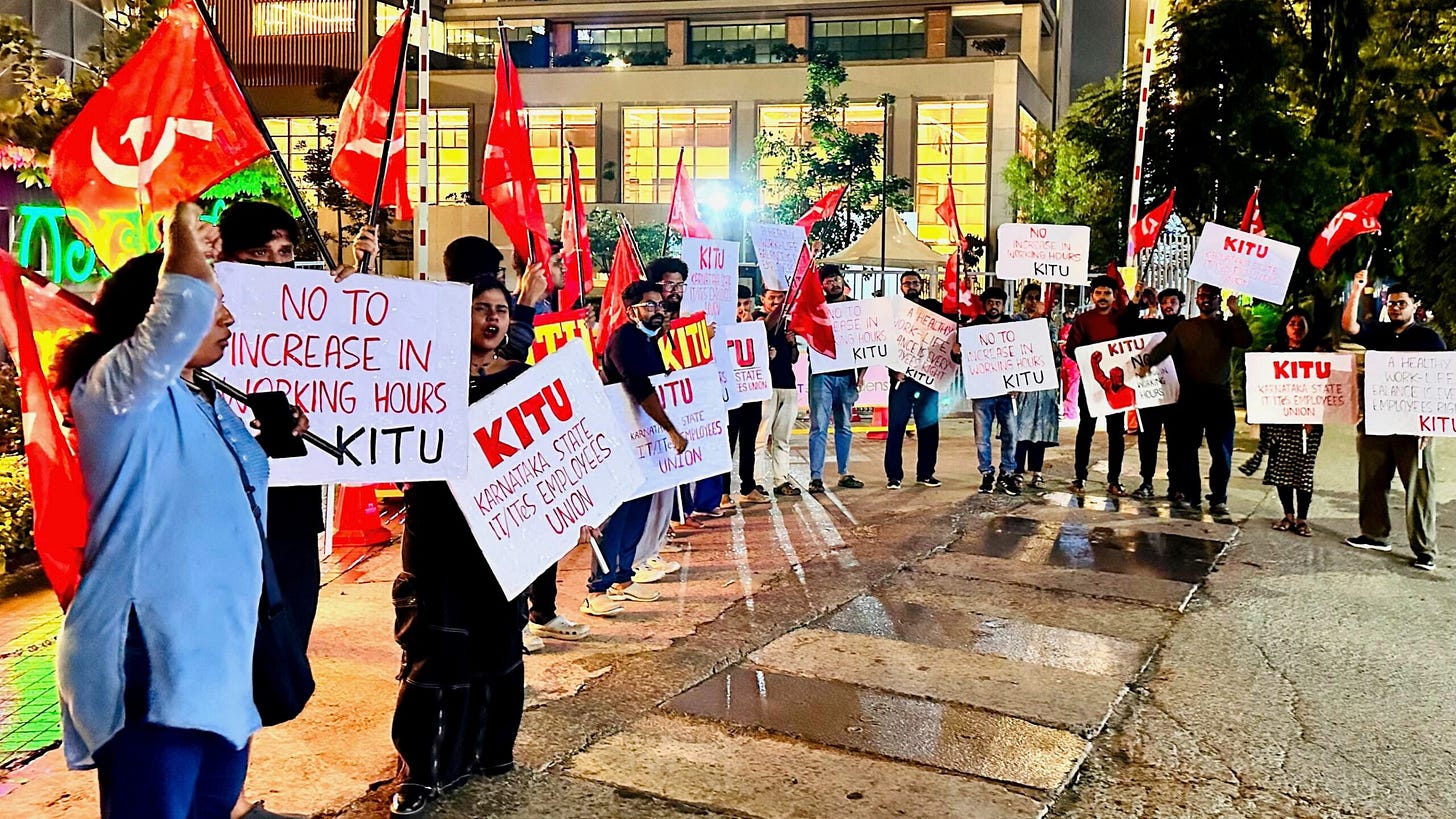
Information Technology (IT) workers took to the streets in Bangalore, India’s IT hub and capital of its southern state of Karnataka, on 18 June. They protested against the state government’s proposal to increase the maximum daily working hours of the industry from 10 to 12.
Demanding the state immediately withdraw any such proposal, protesters called the measure anti-worker and unproductive. They called for greater unity across all workers in the sector to oppose the illegal move.
The Karnataka state government presented the increase in a meeting of stakeholders called by the state’s labor department on Wednesday, despite repeated opposition to the increase in the past.
As per the proposal, the state is planning to change the Karnataka Shops and Commercial Establishment Act (KSCEA) to allow a 12-hour work day including overtime, up from the current maximum of 10 hours daily.
In a press release on Wednesday, Karnataka State IT/ITes Employees Union (KITU) reported that its representative in the labor department meeting objected to the move, calling it an “attack on the basic right of any worker to have a personal life” and demanded its immediate withdrawal.
Attack on workers’ right to life
KITU further stated that if the proposed amendments in the KSCEA are allowed the IT companies will switch to a two-shift system from the current three shifts and “one third of the workforce will be thrown out from their employment.”
Apart from causing massive unemployment among the educated youth in the country’s urban areas, which are already facing an unprecedented crisis in the job market, KITU also underlined the impact on mental health of the increased workload and working hours.
“Death and suicides due to excessive work pressure are common in the IT sector,” KITU said, warning that “increasing working hours will further aggravate the situation.”
KITU cited studies such as the “state of emotional well being report 2024” which revealed that 90% of the corporate employees in India under the age of 25 are struggling with anxiety and a significant number of them are facing even more serious mental health issues.
It reiterated the fact that at a time when the world is increasingly realizing the negative impacts on productivity of increased working hours, this measure is foolish and regressive.
KITU accused those behind the amendment of failing to see IT employees as human beings and treating them like machines to increase profits. “The Karnataka government, in their hunger to please their corporate bosses, completely neglects the most fundamental right of any individual, their right to live.”
In 2024, similar efforts to increase the working hours of the industry were made by the then Bharatiya Janata Party (BJP) government. At that time, KITU and other trade unions strongly opposed an initiative to increase the maximum working hours to 14, which forced the ultra-right-wing government to withdraw it.
KITU claims that the new government, under the “centrist” Indian National Congress (INC), is now pushing the same agenda under pressure from the IT companies.




